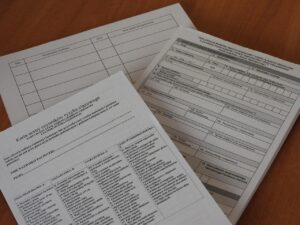Ask These 3 Questions to Keep Your Translation Project On Schedule
We once heard someone in the clinical trial space compare a reliable translation partner to a Honda Accord: “I don’t need flashy. I need reliability and low maintenance.” We couldn’t have said it better ourselves.
Companies that rely on clinical trials have massive amounts of revenue (and liability) depending on the quality and timeliness of their clinical trial translations. As a result, your investment can be held up or even derailed when something as “minor” as document translation is unreliable.
So like shopping for that Honda Accord, it’s always better to ask key questions before you choose a translation provider. For example, in clinical trial translations, you want to prevent projects from being delayed before you’re in a time crunch.
To do that, here are three things you can ask for when choosing a translation provider that will help you avoid the high-maintenance clunker and, more importantly, find yourself with the “Honda Accord” of translation partners.
Question 1: Ask For a Launch Project Summary
 Every translator asks for some sort of project brief as part of their intake process. However, many in clinical trials make the mistake of assuming that their project needs have been immediately understood. How can you catch miscommunications – moments where what you said isn’t what they heard? One fundamental way to ensure this is to request a written project summary created by their team.
Every translator asks for some sort of project brief as part of their intake process. However, many in clinical trials make the mistake of assuming that their project needs have been immediately understood. How can you catch miscommunications – moments where what you said isn’t what they heard? One fundamental way to ensure this is to request a written project summary created by their team.
The project manager you are working with for your translation project should repeat back (not copy-paste) your project summary in full. This includes your instructions and the strict timeline by which you need tasks completed. By prompting the other party to explain the specifics of your expectations, you can ensure they’ve correctly comprehended your instructions.
More than that, you can easily spot and correct misunderstandings they may hold regarding the purpose of the translation and the project timeline.
Their recitation of your project needs will clearly highlight everything you need to know to streamline handoffs and prevent mishaps. Having this in writing also gives you a higher level of accountability regarding their commitments to you.
Plus, you’ll be able to get a feel for their processes and norms from the way they explain their plan. It’s a recipe for success!
Question 2: Ask For a Deadline Confirmation Email
It’s true in most areas of life, and clinical trial translation projects are no exception: it’s often the simple oversights that cause the most outsized problems. One of the most common we hear about is misunderstood deadlines.
Something as simple as a date formatting mistake can derail your projects. Many providers use dashboards, which can use different kinds of date formatting.
Asking the project management team to send you an email message confirming any relevant deadlines is a great way to create a written understanding of what their responsibilities are. In addition, both parties can look back at or point to this email should future confusion arise.
By requesting that they send you this confirmation email at the beginning, you can quickly review that all the information is correct before they proceed. Then, imagine the peace of mind and clarity you enjoy as the project progresses.
Within this email confirmation, you can also request that the translation team repeat your project summary. That way, you are getting two tasks out of the way at once and improving the chance that your team and theirs are on the same page.
Question 3: Identify Your Points of Contact
 As appealing as large-scale providers can be, they often come with one significant downside: your project gets handled by too many people! That’s why it is essential to determine the primary project manager you will be working with and speak to them first and foremost. This will help you establish your rapport and trust with this individual. You will always know the right person to talk to in the future.
As appealing as large-scale providers can be, they often come with one significant downside: your project gets handled by too many people! That’s why it is essential to determine the primary project manager you will be working with and speak to them first and foremost. This will help you establish your rapport and trust with this individual. You will always know the right person to talk to in the future.
This designated project manager should be able to answer any questions you have during the process. In addition, they should be the ones to confirm the expected turnaround time on your project. Otherwise, you might get conflicting answers by talking to different team members. Always remember that before starting a new project, you should know whom to contact if you need to escalate an issue.
Finally, identifying your points of contact is just a smart way to stay organized. This also means knowing the best format to communicate changes or request updates in your project. For example, using a central client portal vs. one-off emails is better. With one cohesive system, you can keep all your vital information and updates in one place and easily refer back to previous conversations with your project manager.
Built for Clinical Trial Translation
If you’ve read this far in this article, you’ve likely had some “sub-optimal” experiences with translation partners. If you’re looking for a translation partner for a clinical trial, it’s also likely you experienced some consequences and frustration from their “not ready for prime time” services.
You and your organization have invested too much time, capital, and effort into producing accurate clinical trial results, gaining official approval, and eventually bringing a medical or pharmaceutical solution to market to trust your translation to a general translation service provider. Call the industry professionals at DTS to help ensure your clinical trial reaches the finish line.

